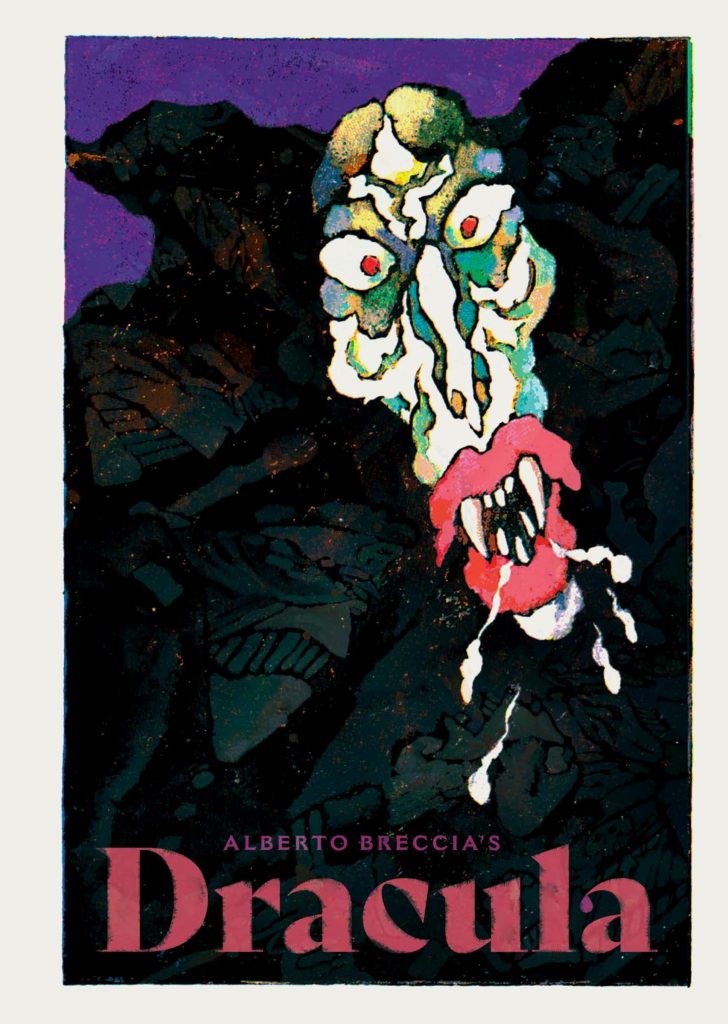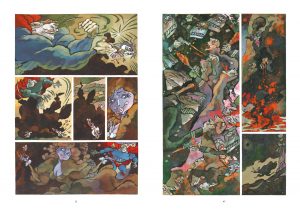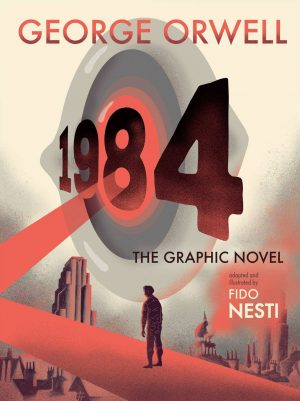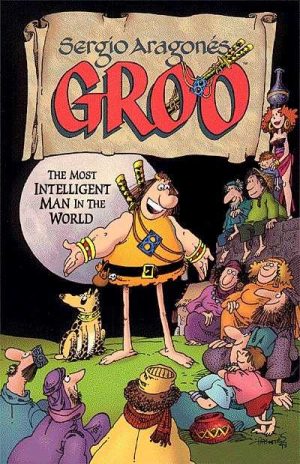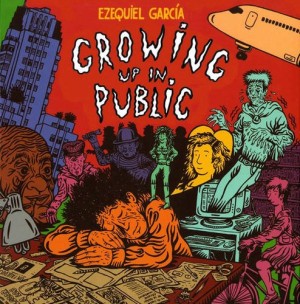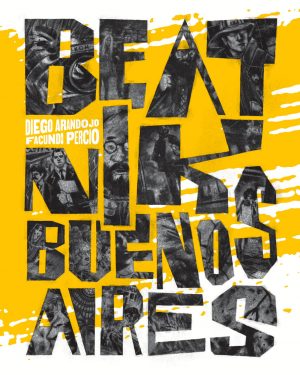Review by Frank Plowright
Just in case the title gives a false impression, this slim hardcover isn’t master artist Alberto Breccia’s adaptation of Bram Stoker’s novel, but his own interpretation of Dracula many years later, his glory days then long behind him.
This Dracula stars in a series of shorts, satirical and wordless, with Breccia going as far he’s able under the brutal Argentinian military dictatorship of the early 1980s to draw parallels with his homeland. With one exception this isn’t obvious unless you’re conditioned to look, and even then it’s a question of guesswork for anyone not very familiar with the circumstances. Does the Superman-style figure in the opening story represent the junta, for instance, or is he just a beefy superhero there to set up the final panel joke? Is the woman from his past that Dracula pines for and rejuvenates a metaphor for Argentina as it was before the military? Perhaps it’s just best to soak up the grotesque absurdity of Breccia’s art without reading too much into the content.
However, doing that reveals plenty of pages audaciously and beautifully painted in a style far removed from standard comic art, yet in the service of protracted lead-ups to hardly groundbreaking jokes. At the same time Breccia was producing these strips the guys working for Mad magazine knocked out far punchier versions of the same type of gag, often in a few panels.
It’s only with the fourth of five strips that Breccia strays from gag territory. ‘I Was Legend’ is a tour-de-force, as Dracula heads anonymously into town only to discover the bloody horrors of the present day are far worse than anything during his peak. He witnesses generals shooting peace protestors, and for once fleeing the flowing blood ends up at a graveyard packed with the bodies of the abducted and missing. Perhaps careful not to arouse investigation by being too one-sided in his view, Brecchia details other social horrors, such as debauchery, drug use and poverty.
This is a very slim book, although competitively priced for a thoughtfully compiled hardcover package, with almost half the content illustrations and blank pages separating the stories, and a large sketchbook section showing the process from roughs to painted art. The collection is completed by Daniele Brolli’s contextualising of the times through which the strips were created, and a one page biography of Breccia.
Ultimately, Breccia’s Dracula is a flawed collection, artistically startling, but with only the single strip of five matching the art.
